Short Time in
Samui
JJ Stone
Most Trafford titles are also available at major online book retailers.
Copyright 2014 JJ Stone.
All rights reserved. No part of this publication may be reproduced, stored in a retrieval system, or transmitted, in any form or by any means, electronic, mechanical, photocopying, recording, or otherwise, without the written prior permission of the author.
isbn: 978-1-4907-4540-4 (sc)
isbn: 978-1-4907-4539-8 (e)
Because of the dynamic nature of the Internet, any web addresses or links contained in this book may have changed since publication and may no longer be valid. The views expressed in this work are solely those of the author and do not necessarily reflect the views of the publisher, and the publisher hereby disclaims any responsibility for them.
Any people depicted in stock imagery provided by Thinkstock are models,
and such images are being used for illustrative purposes only.
Certain stock imagery Thinkstock.
Trafford rev. 09/15/2014
 www.trafford.com
www.trafford.com
North America & international
toll-free: 1 888 232 4444 (USA & Canada)
fax: 812 355 4082
Contents
In my life theres been heartache and pain,
I dont know if I can face it a gain,
Cant stop now, Ive traveled so far
To change this lonely life.
Foreigner, I Want to Know What Lov e Is
I left Pattaya the next day after a long breakfast with Meow at the little restaurant near the Kerati homestay hotel, far enough from the beach to be cheap and close enough to the bars to be fun. It felt like home because we had eaten there three days in a row and the waitress (maybe she was the owner too) chatted with us while we waited for food. It was not really breakfast at 11:00 a.m., but it started the day for us. The street had been noisy until 4:00 a.m., when the pink van with the portable bar, disco ball and lights, and loud music packed up. We got used to it though and enjoyed standing on our balcony, watching the people come and go all night. Now, in the bright morning sunlight, it looked like a different world, and it really was because the people were shopping, visiting the travel agency, and eating meals instead of drinking, flirting, and looking for sex. The taxi pulled up, and we drove one kilometer down Soi Bukaow and dropped Meow off at her place. I waved to her through the back window, and our eyes stayed locked until the taxi turned the co rner.
The trip to the airport in U-Tapao, 150 km south of Bangkok, usually took thirty minutes, but the traffic was heavy. There was a problem at the Cliffs Resort in the south end of Pattaya. It seemed that the red shirts, the political party of the rural Thai people, were protesting a government meeting there. This was in response to the previous demonstration of the yellow shirts, the pro-king, pro-army, pro-aristocracy party that represented Bangkok interests, in a demonstration at Suvarnabhumi Airport, when they shut down the airport for three days. Thai politics is confusing to farangs , foreigners, even those who take time to try to understand the constitutional monarchy that governs the kingdom. King Bhumibol is head of state and has been on the throne since 1946. He is not only the longest-serving king in the world today, but he is also deeply revered by all Thai people. The law of les majeste prohibits any criticism of the king or monarchy, and the penalties for public or media criticism of the king are severe. The army defends the king while the political parties joust for local control of budgets, and omnipresent corruption follows politicians like remora follow sh arks.
The basic division of power in Thai politics has always been between rich versus poor, Bangkok versus the countryside, educated versus uneducated, urban versus rural, yellow versus red shirts. Elections do not matter too much because the army has staged coups of the government more than a dozen times in the past twenty years. Indeed, the military has been the dominant government force for more than fifty years. However, in 2001, Thaksin Shinawatra was elected the prime minister of Thailand. He was a popular leader who was supported by the farmers and peasants throughout the country, but his power base was in Issan, the agricultural rice bowl of Thailand. It is not important that red shirt supporters loaded up farmers in vans, drove them to polling places, and paid them ten to twenty dollars to vote for the red shirt candidates; that was hardly novel or newsworthy. Thaksin responded by distributing political largesse to the working poor and crafting policies to boost the price of rice. Not surprising was the revelation that Thaksin made millions of dollars for his family in telecommunications deals, but most foreigners dont know that Thaksin also ran a fierce campaign against drugs and criminals through military and police operations. That might not show up in judicial records because the drug lords usually died before they ever made it to court. The ruthless pattern of interdiction suppressed the drug trade and crime under Thaksin. Regular Thai citizens were grateful for his powerful response to a long-standing pro blem.
Politics in Thailand is woven with threads of history, kings, armies, corruption, crime, and of course, power. The conflict between red shirts and yellow shirts was the simplified way that the news media portrayed the strife to the rest of the world. For Thais, it was the shifting power base between historical forces, and hope seemed to volley between the rich and poor although the rich usually won. Now it seemed to be swinging back toward the poor and the red shirts. As we drove to the airport, I saw that the highway south of Pattaya was blocked for miles to allow politicians to get in and out of Pattaya, a long empty road just waiting for the motorcades of the elite. The agitation was growing at the seaside hotel. Red shirts had broken into the meeting place, and I got out in the nick of time. I was lucky to catch the plane in U-T apao.
I had not slept well last night because Meow and I knew it was our last night together. She was going home to Korat to open a karaoke bar and was dreaming of success so she would not have to return to Pattaya to sell sex. At thirty-four, Meow thought she was too old for the competition in Pattaya, even though I tried to convince her that she was younger than most of the farang s on Walking Street. But Meow had her principles and her dreams. She wanted to go back to Korat, to raise her adopted daughter, Ying, and to support her parents since she was the only daughter. Oh yeah, here is another surprise. Meow told me that Ying was her brothers daughter. He fathered a child with Meows friend at work, but he did not want the family to know, so he convinced the mother to give the baby to Meow. After all, she was the mothers friend and fathers sister, so it was like family. That was how Meow became a single mother. Amazing. It was a good lesson for me about the notion of extended families in Thailand that defied the usual Western understan ding.
All these thoughts poured over me on the flight to Koh Samui. Mostly I thought how lucky I was to meet such a wonderful person, but the pangs of guilt, loss, and emptiness tugged at my heart too. How could I feel so good about Meow and just leave her? I was lost in reverie about Meow and tired from a few hours of sleep, so I hardly noticed how fast the flight was to Koh Samui. After we landed, I got my bag and got in line for a shuttle van to the hotels along Chaweng Beach. I was not in a hurry and did not mind when the shuttle bus driver took a long time to help three young guys from Israel find a cheap hotel. They just showed up and expected to get into a hotel without an advance booking, a risky decision the week before Christmas. Maybe I still had some of the old plan-ahead guy in me, because I booked the Beachcomber Hotel on the beach, an older but reasonable hotel with a good rate that included break fast.
Next page
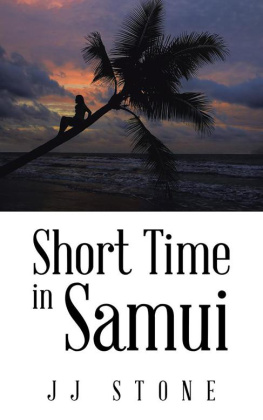


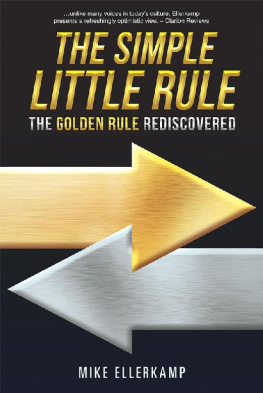
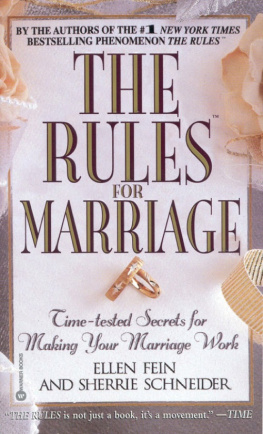
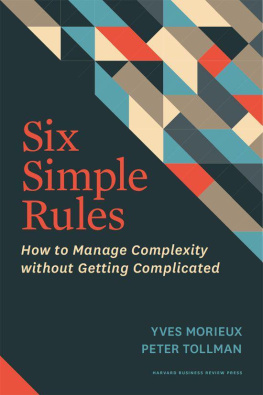

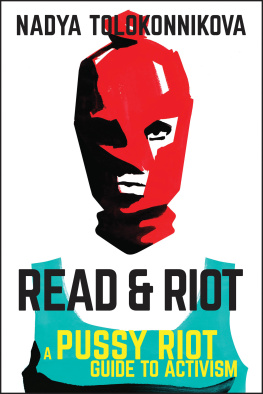
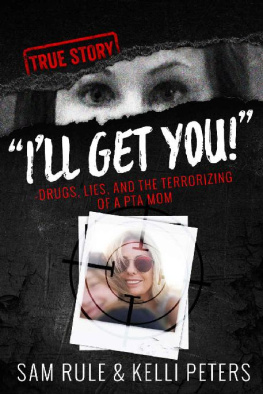
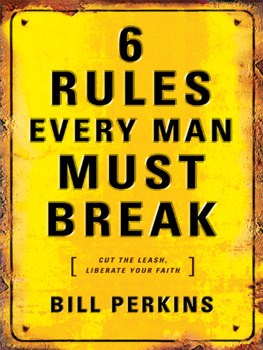
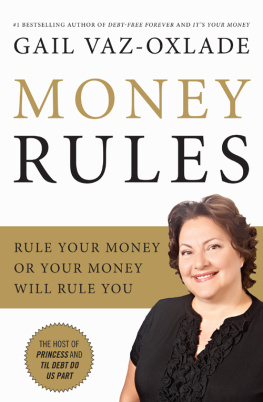
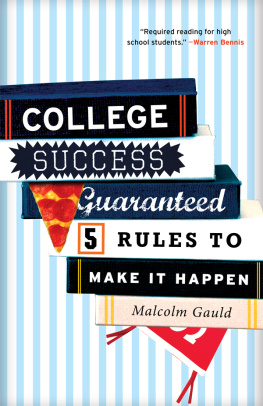
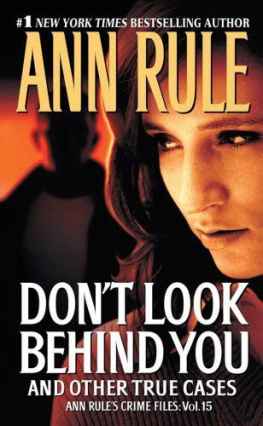
 www.trafford.com
www.trafford.com